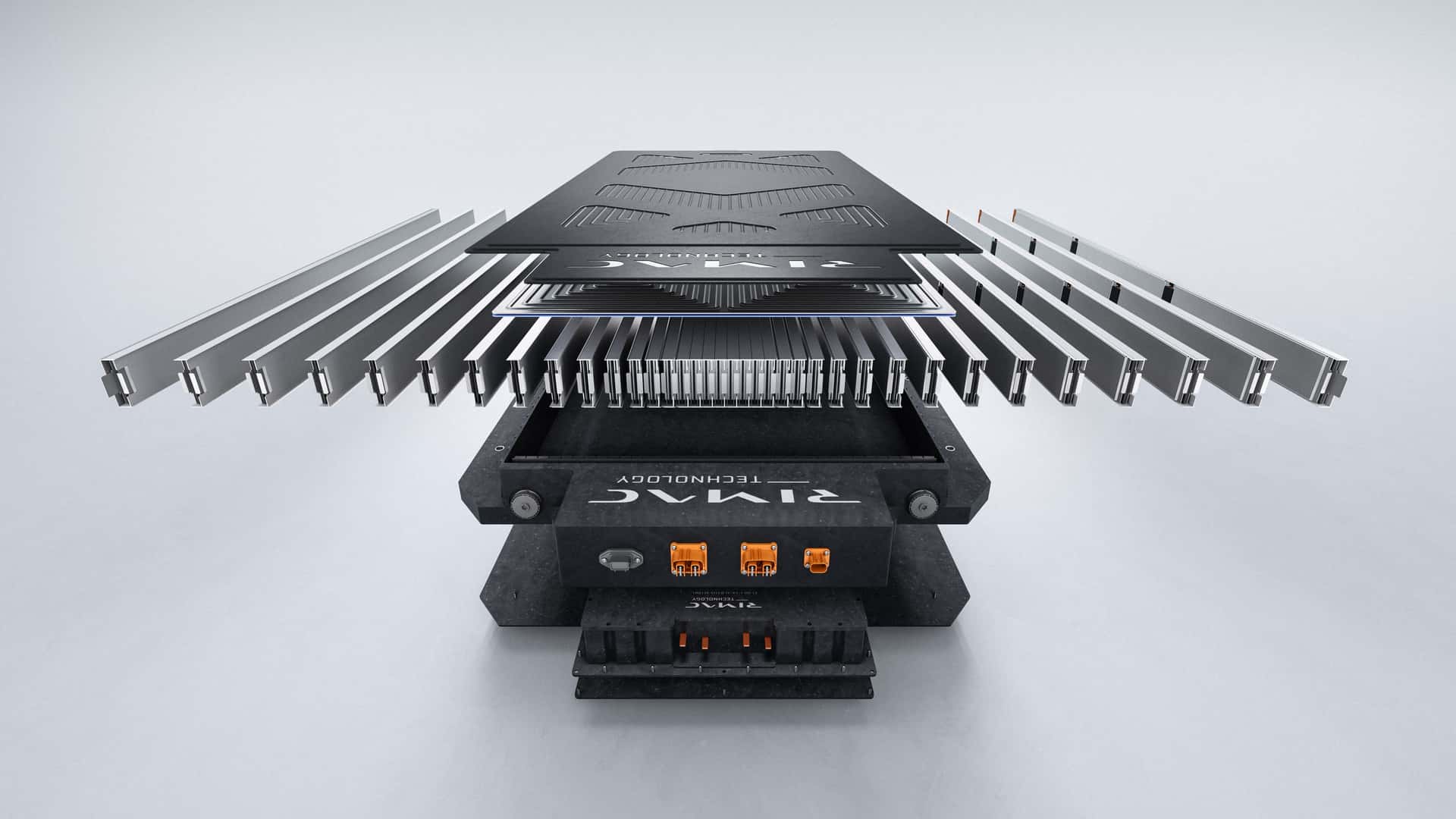Key Takeaways
- Rimac has introduced a solid-state battery set to revolutionize electric vehicle charging, capable of charging from 10% to 80% in just 6.5 minutes.
- The battery offers high energy density, low weight, and retains over 95% of its energy in cold conditions, enhancing safety and performance.
- It will be available in high-performance EVs starting in Q4 2027, designed in collaboration with ProLogium and Mitsubishi Chemical Group.
Battery Innovation Unveiled
Rimac has launched a groundbreaking solid-state battery at the IAA Mobility show in Munich, Germany. This innovative battery boasts an impressive discharge power of 850 kW, significantly outpacing the current liquid-based cylindrical cells. Designed for the next generation of electric vehicles, this solid-state battery can charge from 10% to 80% in just 6.5 minutes, putting it ahead in the race for fast charging technology.
Developed in partnership with ProLogium and Mitsubishi Chemical Group, Rimac’s new battery promises to revolutionize EV refueling, making it as quick as traditional gas station stops. However, to fully realize this advantage, DC fast charger networks will need to upgrade to handle the increased power demands. There is an opportunity for charging operators to equip their stations with the necessary infrastructure before the battery becomes available in late 2027.
In terms of performance, the solid-state pouch cells offer noteworthy energy retention, maintaining over 95% of their capacity even at frigid temperatures of -4 degrees Fahrenheit (-20 degrees Celsius). This enhanced thermal stability greatly reduces safety concerns regarding fire or explosions at the cell level, a significant advantage over current battery technologies.
The new battery’s voltage range is rated between 540 and 907 volts, with a power density of 2,210 Watts per kilogram and 2,980 Watts per liter. This represents a marked improvement over the cylindrical cell pack, which has a power density of 1,753 W/kg and 2,575 W/L. Consequently, the 100 kWh solid-state battery occupies less space, requiring only 285 liters, compared to 320 liters for its cylindrical counterpart. Weight efficiency also improves, with the new design weighing 846 pounds (384 kg), notably lighter than the previous model’s 1,036 pounds (470 kg).
Rimac’s solid-state cells utilize a cell-to-pack assembly method and feature a cathode made of 90% nickel, 5% manganese, and 5% cobalt, paired with a 100% silicon anode. The design includes an innovative thermoplastic composite enclosure and an indirect cooling system using refrigerant, differing from the liquid cooling method used in cylindrical models.
Additionally, Rimac Technology has showcased new electric drive units and domain controllers at the event, indicating a broader commitment to advancing EV technologies.
Overall, Rimac’s solid-state battery not only enhances the feasibility of electric vehicles with its rapid charging capability and impressive energy metrics but also emphasizes safety, efficiency, and reduced environmental impact. With this technology on the horizon, the future of electric mobility looks promising.
The content above is a summary. For more details, see the source article.















